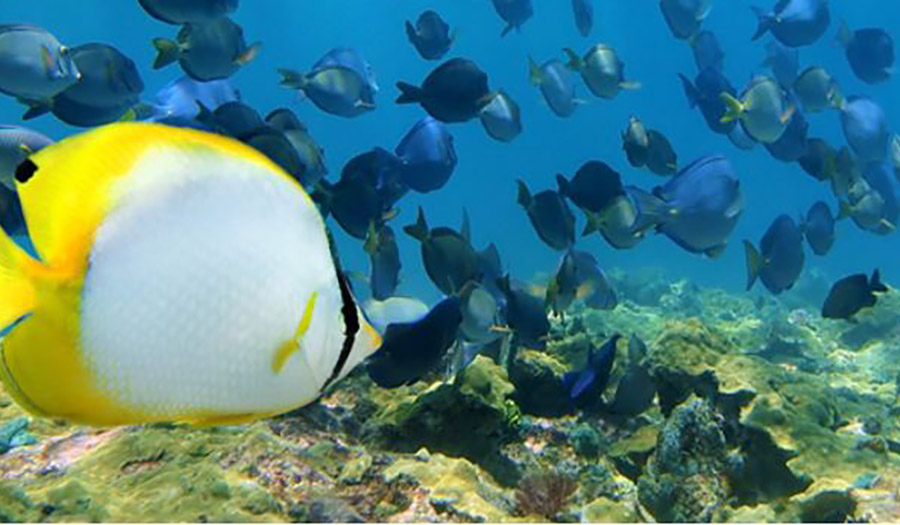The use of a trawling net is an ancient fishing art that is used practically all over the world. This technique consists of a weighted net that sweeps the bottom of the sea and captures everything in its path. These nets can be used in small boats (artisanal fishing), in semi-industrial fishing or in industrial fishing.
Said in a more "colloquial" way, it is like passing a tractor shovel through an agricultural vegetable field to extract some cherries tomatoes while discarding all the rest.
At the end of 2017, the Board of Directors of INCOPESCA, supported by unknown studies and not endorsed by the scientific community of the country, was given the legal right to establish new licenses for shrimp trawling. This, in spite of the fact that since 2013, INCOPESCA has been prohibited from granting or renewing permits, authorizations or new licenses, which are expired or inactive for shrimp fishing with trawls.
According to Jorge Arturo Jiménez, general director of the Marviva Foundation, "INCOPESCA's arrogance is based on ignorance and falsehoods that justified the decision with the inclusion of 24 regulatory measures that made the decision miraculously sustainable.
"INCOPESCA bases most of its" technical support "on a simple school map, which does not support any technical analysis, and is useless in regards to justifying or even evaluating the proposed measures."
"In a contempt for the country's scientific capacity, they try to promote their actions as a great technical achievement" unparalleled in the scientific history of the country, demonstrating only the ignorance that technical leaders have in that institution. Repeatedly abusing the word "sustainable" they try to cover their shortcomings with an empty rhetoric of technical support, "Jiménez said.
Indiscriminate fishing
For Dr. Ingo Wehrtmann, coordinator of the Unidad de Investigación Pesquera y Acuicultura (UNIP) of the Centro de Investigación en Ciencias del Mar y Limnología (Cimar), the main problem of this type of fishing is its poor selectivity because “virtually all organisms that are in the path of the trawl net end up as part of the catch…. all the organisms that do not represent the target species (e.g. shrimp) form the companion fauna (FACA) of the fishing”.
What happens to these undesirable organisms that do not represent the target species? There are two possibilities: take advantage of it or discard it. In Costa Rica, the most common practice is to return these organisms (turtles,sharks,crabs, usually dead or with very little chance of survival) back to the sea, including animals that are used commercially in other countries of the isthmus.
FAO data indicates that trawling for shrimp and demersal fish accounts for 50% of the total world discard and only 22% of catches. In addition, tropical shrimp trawl fishing accounts for 27% of the world's total discard.
According to Jorge Arturo Jimenez “it is urgent that the political class understands that we are talking about the administration of a public resource that, well managed, can inject hundreds of millions of dollars into the economy of the country and that its proper management would benefit tens of thousands of people on our shores.”
Complaints and deaf ears
In addition to the problem of the ecological impact of trawling, there is “the inability of local authorities to properly sanction illegal fishing operations, which encourages fishermen to ignore regulations,” explains Randall Arauz, of the organization of the US FinsAttached.
"8 years ago a complaint was filed against the Sonia J shrimp boat for illegally operating in Caletas-Arío National Wildlife Refuge, but the Tribunal Ambiental Administrativo del Ministerio de Ambiente (Environmental Court of the Ministry of Environment) has so far been unable to reach a final resolution."
In addition, tour operators and artisanal fishermen have demonstrated against this practice, "What do we tell our guests when a shrimp boat operates in the area and often dead turtles appear on the beaches?" Guanacaste tourism businessmen asked. “The insistence of the government to perpetuate trawling after the definitive closure of the activity in 2019, not only tarnishes the country's reputation as one of the best ecotourism destinations in the world, but threatens the integrity of the marine resources that sustain tourism and artisanal fishing,”denounced the group.
If you are a witness or know of any illegal practice of this type and wish to report it, you can call the Coast Guard phones of Puntarenas, at 2661-1859.
César Vargas



